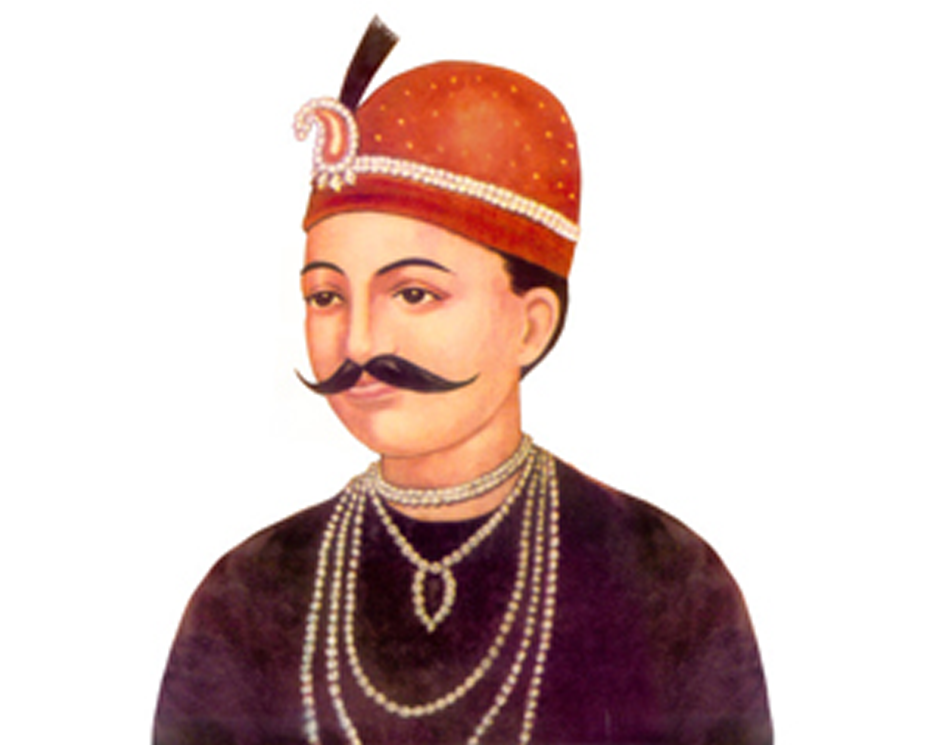Tatya Tope (1814 – 18 April 1859) was a general in the Indian Rebellion of 1857 and one of its notable leaders. He was born as Ramachandra Panduranga to a Maratha Brahman family and took on the title Tope, meaning commanding officer.
Birth :1814
Birth Place : Evla(Nashik).
Full Name : Ramachandra Pandurang Tope
Father’s Name : Pandurang Tope
Mother’s name : Rakhma Bai
Not much is known about Tantia Tope’s personal life except for short accounts in Hindi and Marathi. The ones in English are mostly historical accounts of the Indian Rebellion of 1857. Tantia Tope was born as Ramachandra Panduranga and took on the title Tope, meaning commanding officer, probably derived from Tope, Hindi for cannon or artillery.
According to an official statement, Tantia Tope’s father was Panduranga, an inhabitant of Jola Pargannah, Patoda Zilla Nagar, in present-day Maharashtra. Tope was a Maraṭha Vashista Brahman by birth.In a government letter, he was said to be the minister of Baroda, while he was held identical to Nana Sahib in another communication. A witness at his trial described Tantia Tope as ‘a man of middling stature, with a wheat complexion and always wearing a white chukri-dar turban.
After the uprising in Cawnpore took place on 5 June 1857, Nana Sahib became the leader of the rebels. The British forces surrendered on 25 June 1857 and were evacuated to the Satichaura Ghat on the river, where they were massacred.[5] Nana was declared Peshwa in late June. General Havelock fought with Nana’s forces in battle two times, they were defeated the third time and withdrew to Bithur, after which he crossed the Ganges and retreated to Awadh.
Tantia Tope began to act in Nana Sahib’s name from Bithur. Nana Sahib decided to use the captives for bargaining with the British. The Company forces from Allahabad, under the command of General Henry Havelock, advanced relentlessly towards Cawnpore. Two forces sent by Nana Sahib to check their advance were defeated. After that defeat, it is alleged that around 200 British women and children were massacred on the instigation of a courtesan in Nana Sahib’s court. The details of the incident, such as who ordered the massacre, are not clear. Some believe that Tantia Tope gave the order, while it is widely disagreed by historians that he could not be charged with those alleged murders.Christopher Hibbert opined that Tantia himself saved 53 British women and child from the rebels. Followed by this incident, the British East India Company forces conducted a punitive action under the lead of General Autrum by blowing down Nana Sahib’s palace in Bithoor with cannons, in which Indian women and children including Nana Sahib’s young daughter Mainavati were burned alive.
After losing Gwalior to the British, Tope and Rao Sahib, nephew of Nana Sahib, fled into the Rajputana. He was able to induce the army of Tonk to join him. He was unable to enter the town of Bundi and though announcing he would go south in fact went west towards Nimach. A British flying column commanded by Colonel Holmes was in pursuit of him and the British commander in Rajputana, General Abraham Robert was able to attack the rebel force when they had reached a position between Sanganer and Bhilwara. Tope again fled from the field towards Udaipur and, after visiting a Hindu shrine on 13 August, he drew up his forces on the Banas River. They were defeated again by Roberts’s forces and Tope fled. He crossed the Chambal River and reached the town of Jhalrapatan in the state of Jhalawar. He induced the state forces to rebel against the raja and was able to replace the artillery he had lost at the Banas River. Tope then took his forces towards Indore but was pursued by the British now commanded by General John Michel as he fled towards Sironj. He was still accompanied by Rao Sahib and they decided to divide their forces so that Tope could move to Chanderi, and Rao Sahib, with a smaller force, to Jhansi. However they combined again in October and suffered another defeat at Chota Udaipur. By January 1859 they were in the state of Jaipur and experienced two more defeats. Tope then escaped alone into the jungles of Paron . At this point he met Man Singh, raja of Narwar, and his household and decided to stay with them. Man Singh was in dispute with the maharaja of Gwalior and the British were successful in negotiating with him to surrender to them in return for his life and protection of his family from any reprisals by the maharaja. After this Tope was alone.
Tope admitted the charges brought before him saying that he was answerable to his master the Peshwa only. He was executed at the gallows on 18 April 1859.
18 April 1859 (aged 44–45)
Shivpuri, British India (present-day Madhya Pradesh).

